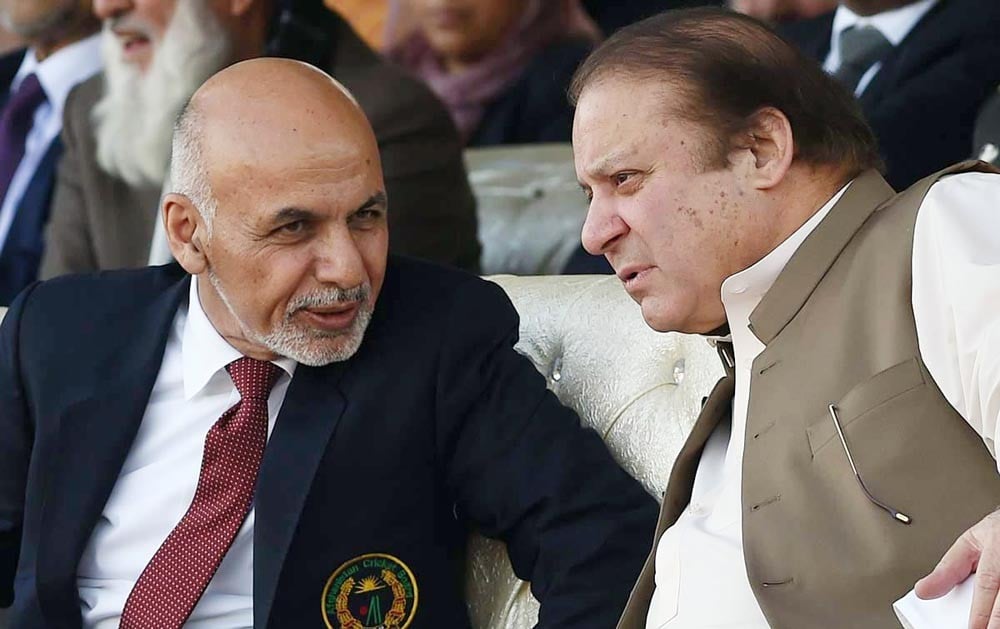
Indian aim of strategic depth in Afghanistan can only harm Pakistan’s hard earned reconciliation approach

A recent report published by the Congressional Research Service, USA, noted that India’s strategic goals in Afghanistan include preventing Pakistan from gaining strategic depth in Afghanistan. Historically, in the light of Pakistan’s deadly geostrategic rivalry with India along its eastern border, Pakistan has always been uneasy about its western neighbour, Afghanistan, having close relations with India.
General Mirza Aslam Baig, a former Pakistani chief of army staff, has been credited for coining the concept of ‘Strategic Depth’. The term is often cited as Pakistani policy with a military dimension which, considering the ground realities, is implausible. However, it could be argued that by not having a conventional military dimension, the concept did have a non-conventional military dimension which has been used by Pakistan. The jihadi infrastructure which was created in Afghanistan during the covert war against the Soviet Union became Pakistan’s first line of defence against India in achieving its national security objectives. This was because a pro-Pakistan Taliban regime in Afghanistan enhanced Indian insecurity and its further redirection in Kashmir through a proxy war without the direct involvement of the Pakistani army provided Pakistan with perfect strategic depth.
In post-9/11 Afghanistan, with the ascendancy of the Northern Alliance in Kabul, Pakistan’s influence in Afghanistan gradually declined, while India gained more political clout. This has troubled Pakistan and it has been particularly been interested in curtailing India’s influence, which is pouring $1.2 billion of aid annually into Afghanistan.
With both the countries -- Pakistan and India -- trying to woo the President Ghani’s regime in Kabul, the idea of strategic depth has opened a new diplomatic front. Both countries have been trying to reach out to Kabul on different levels: Pakistan because of its direct involvement in the Afghan conflict and India because of its growing economic and diplomatic activity in Afghanistan.
President Ghani, disappointed over Pakistan’s inability to contain the Afghan Taliban, has started to reveal its closeness towards India. During the first quarter of his presidency, President Ghani refused direct Indian military assistance and troops training, primarily because of Pakistan’s concerns. Now Afghanistan has approached New Delhi for acquiring four combat helicopters which is certainly to raise some eyebrows in Islamabad.
Relations between Pakistan and Afghanistan have deteriorated in recent months. Afghanistan on many occasions has accused Pakistan of suicide attacks across the country. Last month, militants associated with the Afghan Taliban attacked the Afghan city of Kunduz, and overran it in few hours; globally, their victory was covered as a major triumph since being expelled from power in 2001. Few days after the attack, reports emerged in the Afghan media that the militants involved in the Kunduz assault came from or had support from within the Pakistan. Pakistan, however, denied the reports with ISPR saying that "Pakistan was supporting an Afghan-led and Afghan-owned peace process and condemned Kunduz attack, and such allegations were incomprehensible."
Pakistan, on the other hand, has stressed on many international forums that the only way for peaceful Afghanistan is through an intra Afghan dialogue. Again, few days ago, Prime Minister’s Advisor on Foreign Affairs, Sartaj Aziz, said in a statement: "So, now it is for the Afghan government to decide whether they want to resume the dialogue process. If they want then we will obviously facilitate."
Pakistan’s approach towards its national security, domestically and regionally, has witnessed some remarkable positive trends. Domestically, Pakistan has taken a heavy swing on all forms of militancy while regionally its approach has also changed: Pakistan has condemned the Afghan Taliban’s recent militant surge while pushing them towards reconciliation and dialogue.
This newly published report, citing Indian interests of preventing Pakistan from regaining "preponderant" influence in Afghanistan, only complicates Afghanistan’s security. The last thing anyone needs in Afghanistan’s convoluted theatre is Pakistan pulling out of any peace process in Afghanistan and reverting back to its old policy of good and bad Taliban.
Pakistan’s peace efforts in Afghanistan have been appreciated by the international community. But reports of Indian aims in Afghanistan can only harm Pakistan’s hard earned reconciliation approach in Afghanistan.
Infighting and divisions among the Afghan Taliban have already limited Pakistan’s influence on the group. While different factions have refused from pledging their allegiance to Mullah Akhtar Mansour, the newly elected Amir of the Afghan Taliban, a breakaway faction having control on large number of militants, has appointed their own leader. In a gathering at the southwestern province of Farah, Mullah Mohammad Rasool was named the new leader of the Afghan Taliban.
In recent months, situation across the LoC has remained volatile. Furthermore, with bilateral relations sliding further into abyss, on global diplomatic forums, both the countries -- Pakistan and India -- have been trying to settle scores. Pakistan on its part has presented dossiers at the United Nations pleading for action against India’s growing involvement in Pakistan while India has stressed on the issue of Pakistan’s state supported terrorism against India.
Afghanistan’s new military deal with India; India’s intentions of dwarfing Pakistan’s presence in Afghanistan, and Pakistan’s bilateral scuffle with Afghanistan won’t sit well with the Pakistan, especially with its security establishment.
There is a geostrategic contour of interest of Pakistan in Afghanistan. A friendly regime in Kabul is a principal objective in Pakistan’s long list of objectives, whether through peaceful means or, if necessary, through unconventional military means. As articulated by General Ashfaq Pervez Kayani, a former Pakistani chief of army staff, "if Afghanistan is friendly, we have our strategic depth, because our western border is secure. You are not looking both ways."
India needs to understand Pakistan’s security sensitivities in Afghanistan and Afghanistan should focus on formulating a balanced policy towards both the countries. Indian objectives of gaining strategic depth in Afghanistan by disallowing Pakistan any foothold there would only create further problems. Afghanistan needs to balance its role between these two historic foes.